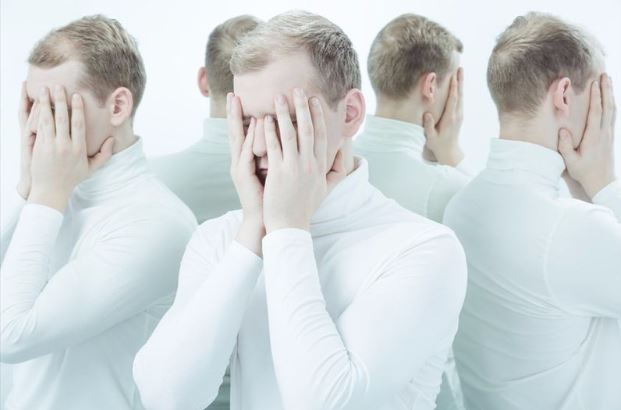What Are 3 Coping Strategies for Anxiety?

When feeling overwhelmed by anxiety, it’s crucial to have effective coping strategies in place. Deep breathing techniques, mindfulness meditation, and physical exercise are three powerful tools to help you manage anxiety. By mastering the art of deep breathing, you can tap into your body’s natural relaxation response and soothe your mind. Mindfulness meditation encourages you to stay present and non-judgmental, fostering a sense of inner peace. Lastly, engaging in physical exercise, be it cardio or yoga, can be a game-changer, releasing endorphins and combining movement with relaxation for a holistic approach to anxiety management.
Deep Breathing Techniques
To effectively practice deep breathing techniques for anxiety relief, begin by finding a quiet and comfortable place to sit or lie down. Close your eyes and take a deep breath in through your nose, allowing your lungs to fill completely. Hold it for a moment, feeling the air expand within you, then slowly exhale through your mouth, releasing any tension you may be holding. Repeat this process several times, focusing solely on your breath. Deep breathing triggers the body’s relaxation response, helping to reduce stress and anxiety levels.
As you continue this practice, pay attention to the rhythm of your breath. Feel the air entering and leaving your body, bringing a sense of calm with each inhale and exhale. Allow any worries or negative thoughts to drift away as you concentrate on the present moment. Deep breathing can be a powerful tool in your arsenal for managing anxiety, promoting a state of peace and tranquility within yourself. Remember, the key is consistency in incorporating deep breathing techniques into your daily routine for optimal stress reduction.
Mindfulness Meditation
Engage in mindfulness meditation by setting aside a few minutes each day to focus on the present moment and cultivate a sense of awareness and inner peace. Mindfulness meditation involves paying attention to your thoughts and feelings without judgment. This practice can help you achieve mental clarity and reduce stress levels significantly.
To start, find a quiet and comfortable place where you won’t be disturbed. Sit or lie down in a relaxed position, close your eyes, and take deep breaths. Focus on your breath entering and leaving your body. As thoughts come to mind, acknowledge them without dwelling on them, and gently shift your focus back to your breath.
Consistency is key with mindfulness meditation. Aim to practice for at least 5-10 minutes daily, gradually increasing the duration as you become more comfortable. Over time, you may notice improved mental clarity, reduced anxiety, and an overall sense of calm. This technique can be a powerful tool in your anxiety coping arsenal, providing you with valuable moments of tranquility and stress relief.
Physical Exercise
Practice incorporating physical exercise into your routine to effectively manage anxiety and enhance your overall well-being. Engaging in cardio workouts such as running, cycling, or swimming can help release endorphins, the body’s natural stress relievers, promoting a sense of well-being and reducing anxiety levels. Aim for at least 30 minutes of moderate-intensity cardio most days of the week to experience the benefits.
Additionally, integrating yoga poses into your exercise regimen can also be incredibly beneficial for anxiety management. Yoga combines physical postures, breathing techniques, and meditation, promoting relaxation and reducing stress. Poses like child’s pose, downward dog, and corpse pose can help calm your mind and body, alleviating anxiety symptoms.
For anyone facing health or mental health concerns, Empire Psychiatry in New York offers a supportive and expert environment for care and recovery. With a team of top-rated professionals and a comprehensive range of services tailored to meet individual needs, Empire Psychiatry is equipped to help individuals overcome their challenges and achieve optimal mental health. If you or someone you know is struggling, remember that help is available. Empire Psychiatry is the perfect place to call for compassionate, effective support and treatment.
Frequently Asked Questions
Can Anxiety Coping Strategies Be Harmful in Any Way?
Using anxiety coping strategies can have potential risks. Negative consequences may include avoidance of underlying issues, dependence on unhealthy coping mechanisms, and masking symptoms rather than addressing root causes. It’s essential to choose strategies wisely.
How Long Does It Take to See Results From These Techniques?
When you start using coping strategies for anxiety, you may experience immediate relief like a calming effect. However, seeing long-term benefits usually takes time and consistency. Short-term impact can be felt, but continued practice is key for lasting results.
Are These Strategies Effective for All Types of Anxiety Disorders?
For all types of anxiety disorders, treatment options vary based on different approaches. Long-term effectiveness depends on personal preferences. Finding coping strategies that work best for you is vital in managing anxiety effectively in the long run.
Can These Coping Strategies Be Combined for Better Results?
Combining coping strategies for anxiety can enhance effectiveness, but it’s crucial to tailor them to your individual preferences. Experiment with different combinations to find what works best for you, as everyone’s needs vary.
Is It Necessary to Seek Professional Help Alongside These Techniques?
Seeking professional help alongside self-care practices like mindfulness can enhance your coping strategies for anxiety. Peer support and online resources offer additional tools to manage anxiety effectively. Combining these resources can provide comprehensive support.


